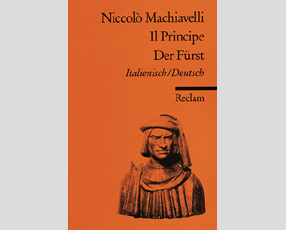This is a ruthless little book.
If it grates at times against our ideas what’s ethical and what’s not it’s because it resists a purely historical reading, and it does so on account of its blunt insights into, and assessments of, human endeavors with regard to power & politics. It’s almost as if one were reading an insightful manual for a game: a game you either play to win or you don’t play at all, and if you play to win, here’s what you should do. Should you refrain from being cruel because one should avoid being cruel? No. You should refrain from being cruel, most of the time, because cruelty, most of the time, doesn’t work in your favor. There are exceptions, of course. And so on. How ethical are we when playing Risk, for example, or any other game that focuses on strategy, power, and politics?
Moreover, Niccolò Machiavelli’s book Il Principe might make you want to know more about the Renaissance which you might find, after all, to have been way more brutal and violent on the whole than the so-called “dark ages.” Just take a guess when the most cruel punishments were inflicted, the most witches burned, the most barbarous wars fought, and the greatest number of people slaughtered, not counting the twentieth century? Here you go: welcome to the Renaissance!
If you have something valuable to add or some interesting point to discuss, I’ll be looking forward to meeting you at Mastodon!

